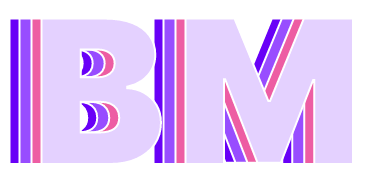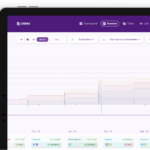There are a variety of software tools that can be useful for running an agency, and the specific tools you choose will depend on the type of agency you are running and the specific needs of your business. Here are a few examples of software tools that you may want to consider:
- Project management software: This type of software can help you track and manage projects, assign tasks to team members, and monitor progress. Examples include Asana, Trello, and Basecamp.
- Customer relationship management (CRM) software: This type of software can help you manage interactions with your clients and customers, and keep track of important information about them. Examples include Salesforce and Zoho CRM.
- Financial management software: This type of software can help you track and manage your agency’s financials, including invoicing, billing, and expense tracking. Examples include QuickBooks and Xero.
- Collaboration and communication tools: These types of tools can help you and your team communicate and collaborate remotely. Examples include Slack, Microsoft Teams, and Google Meet.
- Marketing and advertising tools: Depending on the type of agency you are running, you may need tools to help you with marketing and advertising efforts. Examples include Hootsuite and Adobe Creative Cloud.
It’s important to carefully consider the specific needs of your agency and choose software tools that will help you meet those needs effectively.
Project management software – how to choose the right one?
There are a number of factors to consider when choosing a project management software for your agency. Here are a few key points to consider:
- Determine your needs: The first step is to assess the specific needs of your agency and determine what features and functionality you need in a project management tool. Do you need to track tasks and milestones, assign tasks to team members, or manage budget and resources? Make a list of the features that are most important to you and use it to guide your search for a project management tool.
- Consider the size of your team: The size of your team will be a key factor in determining which project management tool is right for you. If you have a small team, you may not need as many features as a larger team, and you may be able to get by with a simpler, more affordable tool. On the other hand, if you have a larger team, you may need a more robust tool with more advanced features.
- Evaluate your budget: Project management software can range in price from free to hundreds of dollars per month, depending on the features and functionality offered. Determine your budget for a project management tool and look for options that fit within that budget.
- Test out the software: Many project management software vendors offer free trials or demos, so take advantage of these to try out the software and see if it meets your needs. You can also ask for recommendations from colleagues or industry peers who have experience with different project management tools.
- Consider integrations: If you use other software tools in your business, it’s important to consider whether the project management tool you choose integrates with those tools. This can help you streamline your workflows and avoid the need to switch between multiple different tools.
By considering these factors, you should be able to identify a project management software that meets the needs of your agency and helps you manage projects effectively.
What are the main differences on CRM tools and can you give a few examples
Customer relationship management (CRM) tools are software solutions designed to help businesses manage their interactions with customers and potential customers. There are many different CRM tools available, and they can vary in terms of features, functionality, and price. Here are a few examples of differences you may see between different CRM tools:
- Focus: Some CRM tools are designed to be more specialized, focusing on specific industries or types of businesses. For example, there are CRM tools specifically designed for real estate agents, while others are geared towards e-commerce businesses.
- Features: Different CRM tools offer different sets of features, so it’s important to carefully consider the specific needs of your business when choosing a CRM tool. Some CRM tools may offer more advanced features such as marketing automation or lead scoring, while others may be more basic and focused on contact management and sales tracking.
- Integration: Some CRM tools are more easily integrated with other software tools that you may be using in your business, such as project management software or financial management software. If you use other tools in your business, it’s important to consider whether the CRM tool you choose integrates with those tools.
- Ease of use: Some CRM tools are more user-friendly than others, with simpler interfaces and more intuitive navigation. If you are not familiar with CRM software or are new to using it, you may want to look for a tool that is easy to learn and use.
- Price: CRM tools can range in price from free to hundreds of dollars per month, depending on the features and functionality offered. Determine your budget for a CRM tool and look for options that fit within that budget.
Examples of popular CRM tools include Salesforce, Zoho CRM, and Microsoft Dynamics.
Financial management software and liquidity planing, why they are essential for agencies?
Financial management software and liquidity planning are essential for agencies because they help you track and manage your financials, including invoicing, billing, and expense tracking. This can be especially important for agencies, as they often have complex financial structures and need to manage multiple clients and projects at the same time.
Here are a few specific reasons why financial management software and liquidity planning are important for agencies:
- Financial management software helps you keep track of your finances: By using financial management software, you can easily track your income and expenses, create invoices and receipts, and monitor your cash flow. This can help you stay on top of your financials and make informed decisions about your business.
- Liquidity planning helps you manage cash flow: Agencies often have irregular cash flow, with different clients paying at different times. A liquidity plan can help you forecast your cash flow and identify any potential cash shortages in advance, allowing you to take steps to address those shortages before they become a problem.
- Financial management software can help with budgeting and forecasting: By using financial management software, you can create budgets and financial forecasts for your agency, which can help you plan for the future and make informed decisions about your business.
- Financial management software can improve efficiency: By automating many financial tasks, financial management software can help you save time and reduce the risk of errors. This can free up more time for you to focus on other aspects of your business.
Overall, financial management software and liquidity planning are essential tools for agencies because they can help you track and manage your financials effectively, improve efficiency, and plan for the future.
What about Collaboration and communication?
Collaboration and communication are essential for agencies, as they help teams work together effectively and stay connected, even when working remotely. There are many different collaboration and communication tools available, and they can vary in terms of features, functionality, and price. Here are a few examples of different types of collaboration and communication tools and how they differ:
- Chat and messaging tools: These tools allow team members to communicate in real-time and exchange messages, files, and other information. Examples include Slack, Microsoft Teams, and Google Chat.
- Video conferencing tools: These tools allow team members to participate in virtual meetings and conferences using video and audio. Examples include Zoom, Google Meet, and Skype.
- Collaboration platforms: These tools provide a central hub for team collaboration and project management, and may include features such as task tracking, file sharing, and document collaboration. Examples include Asana, Trello, and Basecamp.
- File sharing and storage tools: These tools allow team members to store and share files and documents in the cloud, so that they can be accessed from any device. Examples include Google Drive, Dropbox, and OneDrive.
It’s important to carefully consider the specific needs of your agency and choose collaboration and communication tools that will help you meet those needs effectively. Some factors to consider might include the size of your team, the types of projects you work on, and your budget
Marketing and advertising tools – what tools are on the market and how to distinguish them?
There are many different marketing and advertising tools available on the market, and they can vary in terms of features, functionality, and price. Here are a few examples of different types of marketing and advertising tools and how they differ:
- Social media management tools: These tools allow you to schedule and publish content on social media platforms, track the performance of your social media campaigns, and engage with followers. Examples include Hootsuite, Buffer, and Sprout Social.
- Email marketing tools: These tools allow you to create and send email campaigns to your subscribers, track the performance of your campaigns, and segment your email list. Examples include Mailchimp, Constant Contact, and Sendinblue.
- Marketing automation tools: These tools allow you to automate various marketing tasks, such as lead nurturing, email marketing, and social media posting. Examples include HubSpot, Marketo, and Pardot.
- Advertising tools: These tools allow you to create and manage online advertising campaigns, such as Google Ads or Facebook Ads. Examples include Google Ads, Facebook Ads, and LinkedIn Ads.
- Content marketing tools: These tools help you create and distribute high-quality content to attract and retain customers. Examples include CoSchedule, Hootsuite, and Ahrefs.
It’s important to carefully consider the specific needs of your agency and choose marketing and advertising tools that will help you meet those needs effectively. Some factors to consider might include the size of your team, the types of marketing and advertising campaigns you run, and your budget.




No Comment! Be the first one.